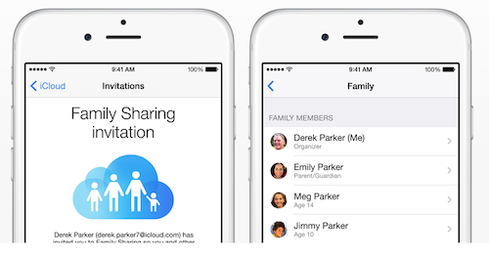iOS 8 Adoption Rate Trails iOS 7
Apple iPhone and iPad owners aren't updating to the latest version of iOS as quickly as they have in the past.


10 Great iOS 8 Features
10 Great iOS 8 Features (Click image for larger view and slideshow.)
Fewer than half of Apple's smartphone and tablet customers have adopted the newest operating system at the 19-day mark. Last year, almost three-quarters had jumped to iOS 7 during the same initial period. iOS 8 doesn't offer the same visual upgrade introduced by iOS 7 in 2013, but it does include a huge number of improvements -- both user-facing and under the hood. What's behind the slower uptake rate?
Data regarding just what percentage of devices are running iOS 8 varies widely depending on the source. The operating system became available Sept. 17, two days before the new iPhone 6 and 6 Plus hit the market.
Mobile analytics firm Mixpanel said iOS 8 hit 14.2% within the first 24 hours after release and 21.6% by the end of the second day. Now, at day 19, it says iOS 8 has been installed on 44.5% of iPhones, iPads, and iPod Touch devices. Mixpanel's data suggests 51% of Apple's mobile devices are still running iOS 7, and another 4.5% are still using older versions. (Some older iPhones and iPads can't be upgraded to new versions of the operating system.) Last year, Mixpanel pegged iOS 7's adoption rate at 69.7% on the 20-day mark. There's quite a big gap between 44.5% and 69.7%.
Analytics firm Fiksu said just 37.2% of iOS devices have updated to the latest version so far. Both Mixpanel and Fiksu base their data on ad impressions.
[Amp your productivity on the go. See Office For iPad: 10 Tips.]
Apple's data is somewhat different. On Sept. 21, just four days after release, it suggested as many as 46% of iOS devices were running iOS 8, with 49% running iOS 7 and 5% running earlier versions. Apple's data was generated by measuring what operating system was being run on the devices that accessed the iTunes App Store on Sept. 21. Apple hasn't officially announced current adoption rates of iOS 8.
iOS 8's release has been anything but smooth. As is typical for new operating systems, it was riddled with bugs from the onset. For example, it was unable to see HealthKit-compatible apps in the iTunes App Store. Apple attempted to patch the operating system with the 8.0.1 update, but accidentally bricked devices by killing cellular connectivity. The 8.0.2 update resolved that and other problems, but introduced its own, such as wonky WiFi performance.
The list of devices that support iOS 8 is wide enough to suggest that limited availability isn't behind the slower uptake of the new OS. It could be due to the lack of visual pop. iOS 7 introduced a brand new look and feel to the OS. iOS 8 brings with it mostly feature improvements, but keeps the same design.
What about you? Have you updated to iOS 8? If so, any problems or regrets? If not, why? Feel free to sound out in the comments below.
The Internet of Things demands reliable connectivity, but standards remain up in the air. Here's how to kick your IoT strategy into high gear. Get the new IoT Goes Mobile issue of InformationWeek Tech Digest today. (Free registration required.)
About the Author
You May Also Like






